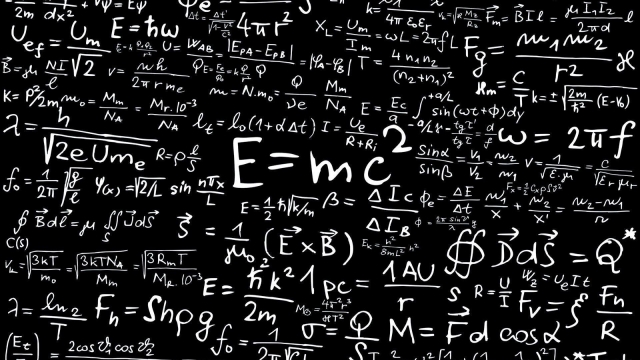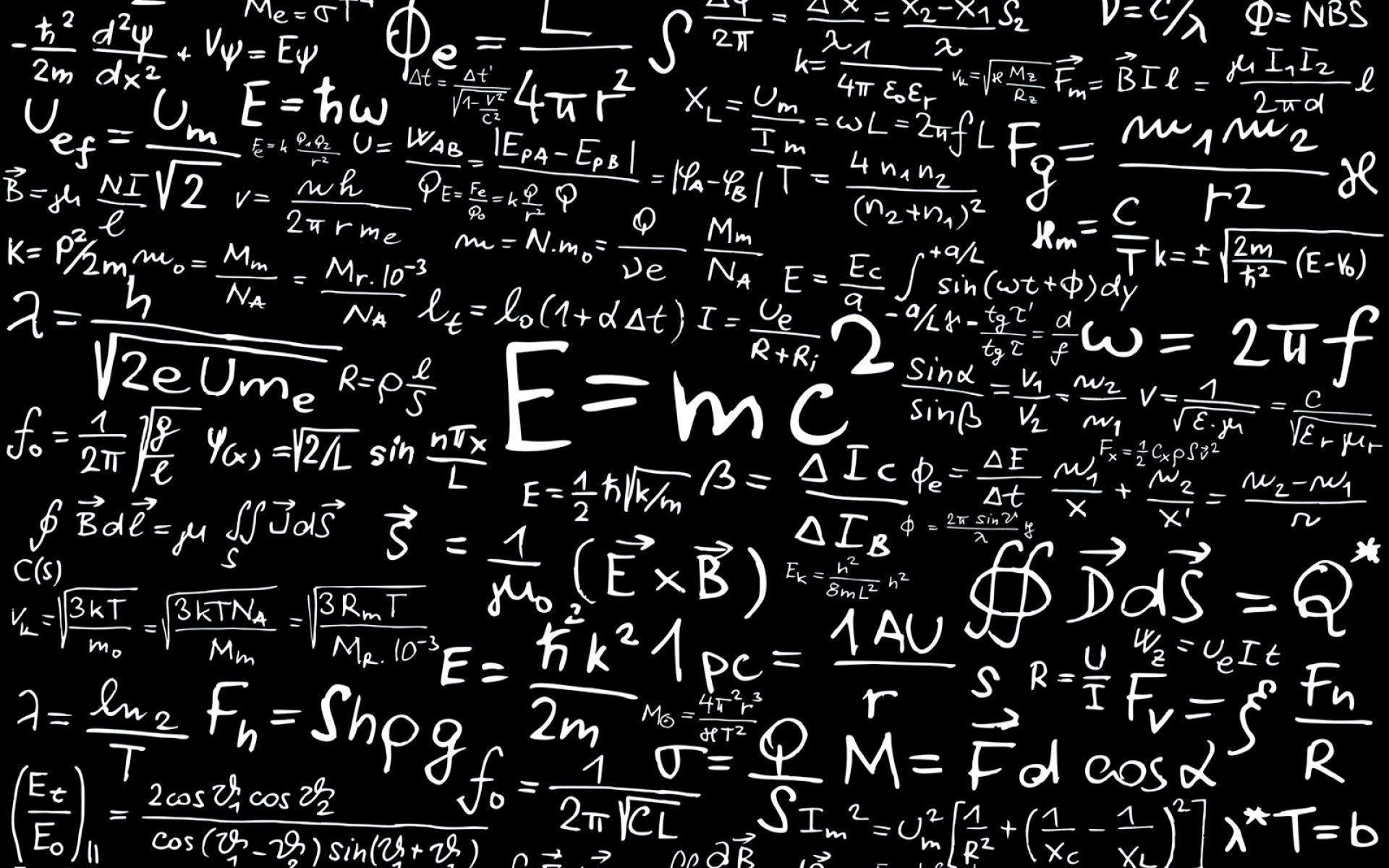Mathematics, the universal language of patterns and logic, has long captivated the minds of scholars and enthusiasts alike. From ancient times to the modern era, its mastery has unlocked countless marvels, shaping our understanding of the world and pushing the boundaries of human knowledge. It is a subject and discipline that holds a unique place in the realm of academia, transcending cultural and geographical boundaries to uncover the secrets of our universe.
Comprising a vast array of branches, including algebra, calculus, geometry, and statistics, mathematics has the power to unravel complex problems and find elegant solutions. With its precise rules and rigorous methods, it empowers individuals to navigate the complexities of science, technology, and even everyday life. Beyond its practical applications, mathematics also cultivates a way of thinking and problem-solving that permeates every aspect of our lives, fostering critical and analytical minds.
In the realm of pure mathematics, there exists a world of abstraction, where concepts exist purely for the sake of exploration and understanding. From the enigmatic beauty of prime numbers to the intricate symmetries of fractals, mathematicians seek to explore the intangible and discover the underlying structures that govern our reality. Through rigorous proofs and theoretical frameworks, these pioneers traverse uncharted territory, forever pushing the boundaries of human comprehension.
Mathematical mastery is not merely about memorizing formulas and regurgitating facts; it is an art in its own right, inspiring awe and fascination. The pursuit of this discipline cultivates an appreciation for the inherent beauty and elegance of patterns and relationships that exist within mathematical structures. From the delicate harmony of Fibonacci sequences to the mesmerizing dance of geometric transformations, mathematics unveils a world where order and chaos harmoniously coexist.
In the following pages, we will embark on a journey through the marvels of mathematical mastery. Join us as we explore the rich history, practical applications, and profound impact of mathematics, a subject that has shaped civilizations, revolutionized industries, and continues to expand the boundaries of human intellect.
Applications of Mathematics
Mathematics, as a discipline, holds immense value in its practical application across various fields. From the realms of physics to finance, mathematics plays a crucial role in shaping our understanding of the world and enabling us to solve complex problems. In this section, we will explore three fascinating areas where mathematical mastery finds its practical application.
Engineering and Technology: Mathematics forms the foundation for numerous branches of engineering and technology. From designing structures to optimizing systems, engineers rely on mathematical principles for precise measurements and calculations. Whether it’s constructing bridges, developing computer algorithms, or designing electrical circuits, mathematics is at the core of the innovation driving our modern world.
Economics and Finance: The intricate world of economics and finance heavily relies on mathematical models and statistical analysis. Understanding the fluctuations in stock markets, predicting market trends, and assessing financial risks all require a deep understanding of mathematical concepts. From calculating interest rates to formulating economic forecasts, mathematics provides the necessary tools for economists and financiers to make informed decisions.

Healthcare and Medicine: Mathematics also plays a significant role in healthcare and medicine. Medical researchers use statistical models to analyze data from clinical trials, helping them evaluate the effectiveness of new treatments and interventions. Mathematical modeling is also essential in studying the spread of infectious diseases, optimizing drug dosages, and even understanding the intricate workings of the human brain.
By delving into these different realms, we begin to appreciate the profound impact that mathematics has on our daily lives. From the bridges we cross to the medicines we rely on, mathematics not only provides a framework for solving problems but also holds the key to pushing the boundaries of knowledge and innovation. The applications of mathematics are truly endless, making it a marvel worth exploring further.
The Beauty of Mathematical Patterns
Mathematics is a subject that showcases the remarkable beauty of patterns. From the simple counting sequence to the intricate sequences found in fractals, patterns play a fundamental role in mathematics. These patterns can be found in various mathematical concepts and are fascinating to explore.
One captivating example of a mathematical pattern is the Fibonacci sequence. In this sequence, each number is the sum of the two preceding numbers. It starts with 0 and 1, and continues indefinitely. What makes this sequence truly captivating is its presence in nature. The spiraling pattern of sunflower seeds, the arrangement of leaves on a stem, and even the growth patterns of branches on trees all follow the Fibonacci sequence. This natural occurrence of the Fibonacci pattern is a testament to the interconnectedness of mathematics and the world around us.
Math Homework Help Websites
Another mesmerizing mathematical pattern is the Mandelbrot set. This intricate fractal is generated through a simple iterative process. When visualized, the Mandelbrot set reveals an infinite amount of detail and complexity. Zooming into different areas of the fractal showcases the emergence of similar patterns within patterns, creating a captivating visual experience. The exploration of the Mandelbrot set uncovers an almost infinite world of intricate patterns, demonstrating the boundless nature of mathematical beauty.
Mathematical patterns also extend beyond numbers and visual representations. Algebraic patterns, such as geometric progressions, offer insight into the predictable nature of mathematical relationships. These progressions, where each term is a constant multiple of the previous term, can be found in various real-world scenarios, from population growth to the depreciation of assets. Understanding and utilizing these patterns allows us to make informed predictions and solve complex problems, highlighting the practical applications of mathematical mastery.
In conclusion, the beauty of mathematical patterns is both captivating and bewitching. From the elegantly simple Fibonacci sequence to the infinitely complex Mandelbrot set, patterns in mathematics demonstrate the interconnectedness of the subject with the world around us. Whether in nature, visual representations, or algebraic relationships, mathematical patterns unveil a world of wonder and endless possibilities, inviting exploration and deepening our appreciation for the marvels of mathematics.
The Role of Mathematics in the Modern World
Mathematics plays a crucial role in the modern world, permeating every aspect of our lives. From the simplest daily tasks to the most complex scientific discoveries, the application of mathematics is ubiquitous. It forms the fundamental backbone of various fields, contributing to technological advancement, economic growth, and the understanding of natural phenomena.
One significant realm where mathematics is indispensable is technology. The development of computer science and artificial intelligence heavily relies on mathematical principles. Complex algorithms and mathematical models enable machines to process, analyze, and interpret enormous amounts of data, driving innovation in industries such as healthcare, finance, and transportation. Mathematics, with its ability to measure and quantify, is the language through which technological progress is made.
Beyond technology, mathematics also underpins the economy. Financial institutions heavily rely on mathematical models to assess risk, optimize investment strategies, and make informed decisions. In the era of big data, statistical analysis and predictive modeling have become invaluable tools for businesses seeking to understand consumer behavior, improve operational efficiency, and drive profitability. Mathematical proficiency has thus become a sought-after skill in the workforce, with expertise in data analysis and mathematical modeling in high demand.
Moreover, mathematics extends its influence into scientific research, enabling us to tackle complex problems and unravel the mysteries of the universe. From physics and astronomy to biology and chemistry, mathematical concepts provide the framework for understanding natural phenomena and formulating theories. Equations and mathematical proofs are the language through which scientists describe and predict the behavior of physical systems, making possible groundbreaking discoveries and technological advancements that shape the world we live in.
In conclusion, mathematics is not only a subject studied in schools but an essential tool that shapes the modern world. Its application spans technology, economy, and scientific research. By providing a means to quantify and analyze, mathematics empowers us to make informed decisions, pursue innovation, and unravel the wonders of the universe.




